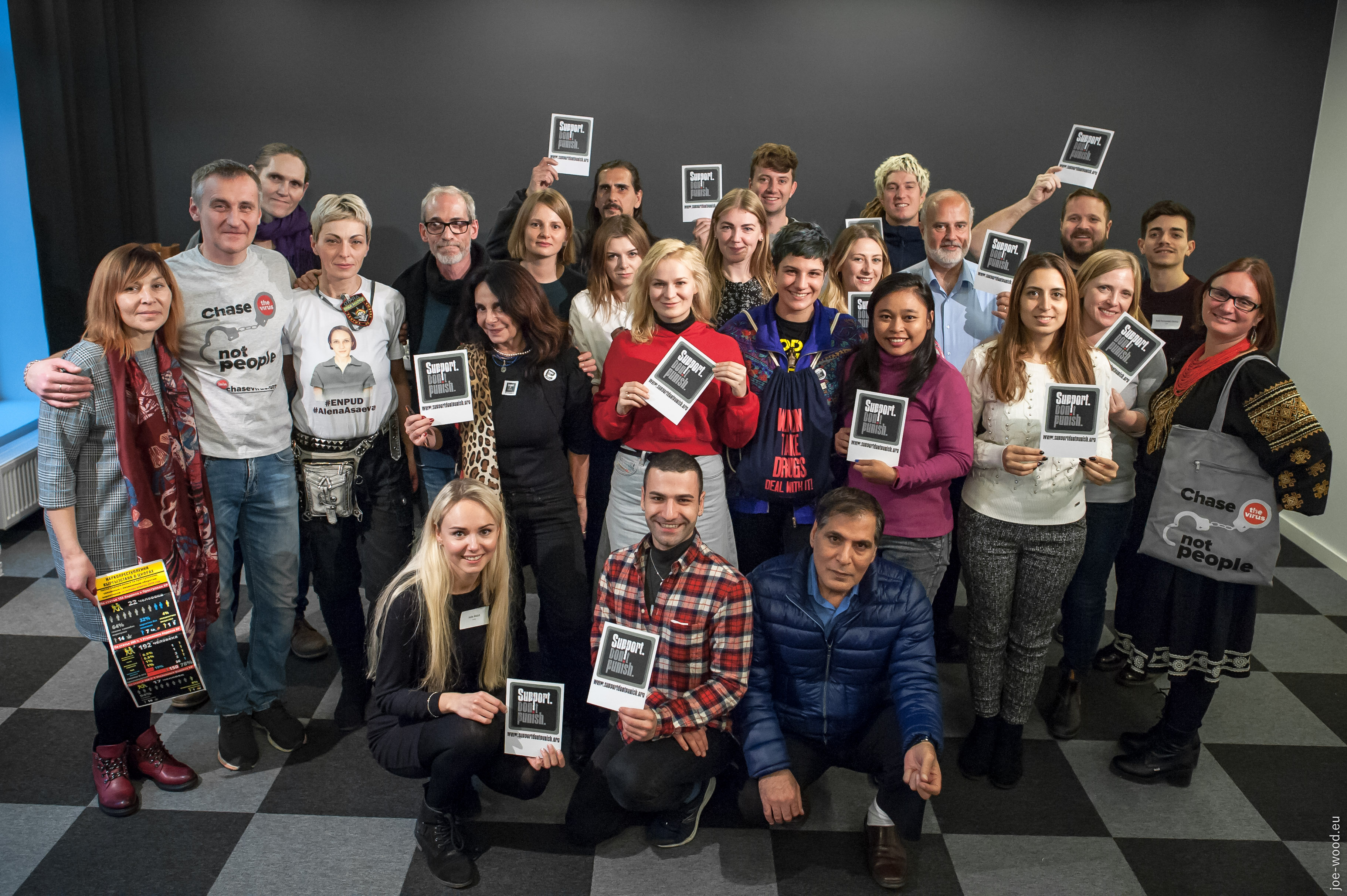This project is implemented by International Harm Reduction Consortium which includes International Drug Policy Consortium (IDPC) as lead of Consortium, Harm Reduction International (HRI), Youth RISE, Women and Harm Reduction International Network (WHRIN), Middle East and North Africa Harm Reduction Association (MENAHRA), Eurasian Harm Reduction Association (EHRA), Eurasian Network of People who Use Drugs (ENPUD) and European Network of People who Use Drugs (EuroNPUD).
The Harm Reduction Consortium exists to challenge the global war on drugs (the critical factor affecting the rights of people who use drugs), to scale-up access to HIV-related harm reduction services, and to advocate for greater resources for harm reduction. The Consortium comprises leading international and regional harm reduction, drug policy and drug user networks, and it has a proven record of successful collaboration. Collectively, we seek to amplify civil society voices by linking-up international policy making processes with regional dialogues and mechanisms and, ultimately, the country-level work being done by our members and partners.
- A global initiative to reframe the messaging, “storytelling” and communications around harm reduction and drug policies;
- Coordinated advocacy around key UN structures such as the Commission on Narcotic Drugs (CND);
- Coordinated advocacy and information sharing at key HIV-related fora and conferences;
- The global Support Don’t Punish campaign enabling local partners and ISP groups to promote harm reduction and policy reforms;
- Cross-consortium communications and network capacity building.
- Each partner will also deliver their own high-impact HIV work, including research, resource development, CSO and ISP capacity building, and budget advocacy.
Within the Consortium activities, EHRA continues our work for advocacy of progressive drug policy and peer-to-peer and scientists mentoring support for and with community of people who use drugs:
- Upgrade, modernise and communicate the harm reduction approach related to new psychoactive drug use in the region, taking into the consideration gender specific services.
- Capacity building for civil society on advocacy for harm reduction, human rights and policy reform. Sub-grants and mentoring supporting for local advocacy projects in Eurasia.
- Development of a ‘Criminalization Costs’ database in Eurasia. We continue developing the ‘Criminalization Costs’ database to present compelling financial arguments for harm reduction drug policy reform, by highlighting the costs of current punitive responses in various countries.
- Strengthening EHRA team and members capacity to advocate for decriminalization and the initiation of alternative punitive approaches. Consortium-wide engagement, advocacy and support for civil society representation at the UN Commission on Narcotic Drugs (CND). The whole Consortium will engainge again at this key policy fora, with 2019 being a particularly key year with a high-level Ministerial Segment in Vienna.
- Participation in the partner kick-off and capacity building meeting held in London, UK;
- Participation in CND and Ministerial Segment in March 2019 in Vienna, Austria, and in presenting regional challenges and best practices in two special sessions, one of which was co-organised by EHRA;
- Participation at the HR19 conference in Porto, Portugal, including organisation of 10 sessions that focused on the CEECA regional problems and delivered the regional campaign “Chase the virus, not people!”;
- EHRA sub-grants to ISP partners across the region on behalf of ENPUD (8 applications approved from which 6 were successfully delivered);
- EHRA sub-grants for local community / ISP organisations to support national advocacy activities to address human rights violations and the need for drug policy reform (5 applicants received small grants: Russia, Lithuania, Kazakhstan, Kyrgyzstan and Bulgaria);
- M&E and technical support visits by EHRA to member CBOs in Bulgaria and Ukraine;
- Study tour to Germany for ENPUD activists to learn from national drug user networks and about national drug policy reforms;
- Regional experts meeting on “Harm Reduction 2.0” held in Vilnius, Lithuania, in November 2019.
- Video material from the meeting on harm reduction approaches was prepared and posted on EHRA website.
- Report on the results of EHRA resource support in capacity building and mobilization of the community of people who use drugs in 2019 was prepared.
- Criminalization costs pocket guide was developed.
- Participation in Annual Consortium partners face-to-face meeting and capacity building workshop in Lebanon.
- Participation in CND 2020 in Vienna, Austria.

Countries covered by project: Eastern and Northern Europe, the Baltic Countries and Central Asia
Project timeline: January 2019 – December 2021
Overall budget: The whole Consortium budget is 2 720 001 USD where EHRA budget is 406 191 USD for 3 years.
Project donor: Robert Carr Fund for civil society networks (RCF)
Contact person: Igor Gordon
